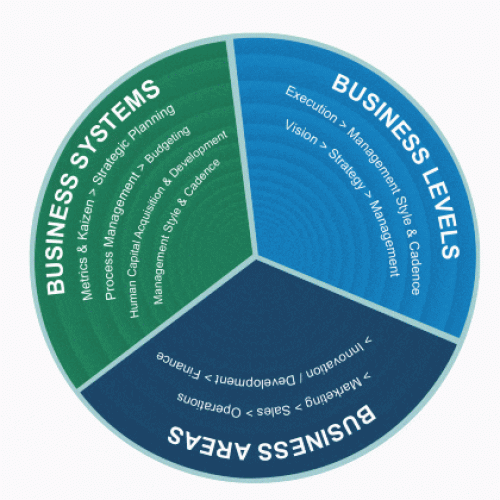Why You Can Never Trust Journalists on Complex “Arts”.
Here is an article in Inc. about the “best” management style. It shows why you can never trust journalists to offer advice on complex “arts” like management, as opposed to simple skills.
https://www.inc.com/jessica-stillman/what-is-best-leadership-style-100s-studies-adam-grant-give-exact-same-answer.html It is 100% wrong for most circumstances yet claims to cite “139 studies.”. Yikes!
Journalists are 100% wrong on leadership and management issues because they are complex arts, and they refuse to acknowledge the differences needed based on the situation, level of people, or even the individual. Or even the industry. There is no one-size-fits-all answer to leadership or management.
This is like saying Walmart should hire the same way Mercedes does. Or a brain surgeon should fix your broken leg or intestinal disorder. Or that the “best” meal comes from Joe’s restaurant. There is no such thing as “best” without context. Best for taste, budget, convenience, or atmosphere? Best authentic Italian chicken? Maybe, but still subjective. Professional journalists should know better.
These masters of all things journalists ignore the industry and stage of development of a company and dozens of other factors that determine the “best” course of action, which is always specific to a given situation. They generalize and assume anecdotes from a CEO, or even an author or academic without practical experience in that art, that was successful in one company “must be right.”. But there is no such thing as “right” without context. It is subjective and also situationally specific. That is the difference between hiring a consultant with decades of deep experience and reading a book.
Young and unmotivated people (like younger kids and new employees) need discipline and controls (i.e., warehouse and customer services workers). They are not expected to be creative or even collaborative. Hence, micromanagement is needed.
Jeff Bezos obviously got that and was greatly rewarded. Marketplace proof for that exact situation only. Some may say he took it too far when people complained they had no time for bathroom breaks and had to pee in a bottle. That is debatable and also context-sensitive. Would Amazon even exist without these controls? Would Amazon even exist if everyone was paid $1 more per hour from day number one? I doubt it, as it almost went bankrupt a few times.
Micromanagement is generally not appropriate for professionals, managers, or executives who need strategy, plans, and larger goal setting (MBO/OKR) to align and can collaborate better. Allowing the team to share expertise. These people are qualified to “collaborate” and make quality decisions because they have many decades of collective experience. They can take reasonable risks, consider multiple perspectives from business, technical, and strategic perspectives, and weigh many options.
Then there is the need for leadership and “management by wandering around” (MBWA) to shortcut politics and increase cross-department and function communications and mentoring across larger organizations. This makes an organization more honest and removes the sugar coating of information as it travels up the org chart. It builds relationships without bureaucracy in the way.
Why do people (without a decade of experience in the matter they are writing about) want to pretend there is only one answer/style for all situations? That is never true.
Context matters. Industries and companies are very different too.
And each individual also has different motivations and needs. Different effort levels, intelligence, and ability to learn and grow. Want a generic piece of management advice? Always design a win-win relationship for each employee. Invest in them only if they invest in themselves too. Grow people when they are ready and willing. Many do not want to grow because that takes personal effort.
Do not try to apply every anecdote and article from journalists to your company’s culture. This is like someone who never managed anyone giving advice on management, and it is all too common today. Get advice that is context-specific from experts, not “influencers,” journalists, or people generating content from interviews or LLMs.
Peter Drucker, The Father of Management, created many truisms at a high level, like:
- You cannot improve what you do not measure. Literally true, as how would you know you improved it?
- Be mission-driven: Organizations should define and communicate their mission clearly to guide all activities.
- Focus on Effectiveness, Not Efficiency: It’s essential to ensure that goals are achieved rather than merely optimizing processes without a clear purpose.
- Understand the Customer: Knowing and responding to customer needs is critical for success.
- Encourage Innovation: Foster an environment that supports creative thinking and innovation.
- Measure Performance: Establish clear metrics to evaluate success and inform decision-making.
- Promote a Team Culture: Encourage collaboration and teamwork among employees to achieve common goals.
- Adapt to Change: Organizations must be flexible and willing to adapt to changing circumstances and environments.
Notice how none of these preach a specific, but a higher-level philosophy?
Being high-level, they can apply in the bulk of situations. They do not claim “collaborative management” is “best” for everyone. That is something no experienced leader would ever say. They might say, “Collaboration is a good thing.”.
Many pretend that they have credibility because of “studies,” but every one of these studies had different context, variables, and quality too. Even their objectives were not likely all aligned, as finding the “best” of almost anything is a subjective thing, not an objective one. It depends on perspective, goals, and potentially dozens of other factors.
It is no wonder Inc. turns off comments on articles like this, as ten different real experts would likely have ten different opinions too. I love Inc. and have read it for many decades, but this issue is a glaring problem today in journalism. Everyone thinks they are experts, pundits, and have authority because they have a platform. Not true. Complex.









